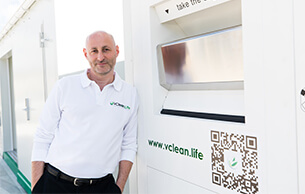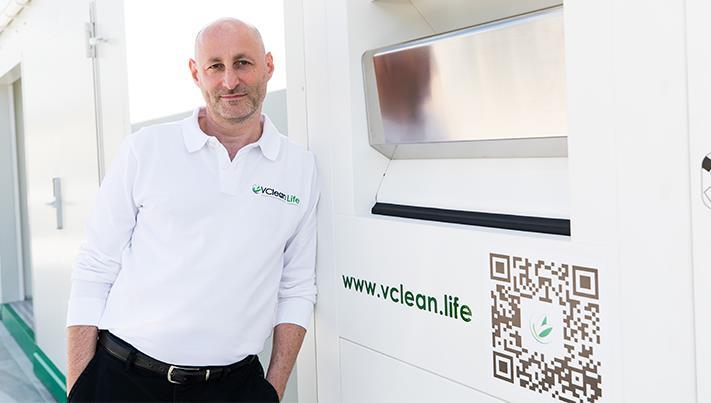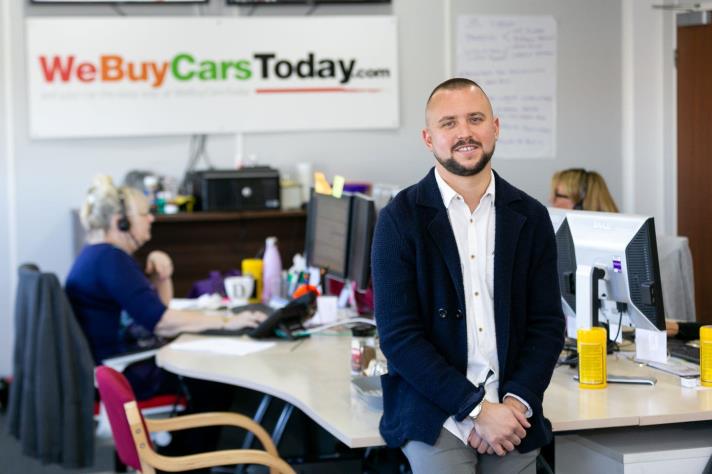Whether you’re starting up a business or an experienced entrepreneur, managing how to dispose of your waste, in both a cost efficient and ethical way will always be a challenge.
Wastage, as in what the business actually throws away, can accumulate costs as high as 4.5% of a business’s overall turnover according to CIPS, and in some extreme cases, can accumulate up to 10% of the business’s overall gross profits.
The costs can by concerning for many businesses if they are not making the necessary attempts to recycle and dispose of their waste in the correct way. With rising landfill taxes, as well as recycling and sustainability becoming a main concern within ethical business principles, creating a reliable waste management solution is more important than ever for any forward-thinking business that is looking to make a change.
Responsibilities
Based on the UK’s legislation and the government stipulations, businesses have key responsibility to manage and dispose of their waste properly. The requirements that you should meet are broadly as follows:
· Adopt the Waste Hierarchy principles in order to keep waste to a minimum by preventing, reusing, recycling, and recovering waste where possible.
· Store or sort waste securely in a safe environment.
· Complete a waste transfer note for each load of waste that leaves the premises.
· Check to establish whether your waste carrier is registered. This can be done by visiting the official Environment Agency website.
· Do not let your waste carrier dispose of waste illegally. As a producer of waste, the legal responsibility for safe and correct disposal falls on you, and not the waste carrier. You have a responsibility to ensure safe disposal through an auditable document trail.
Organising and storing your business waste
To store waste safely and securely, businesses should as standard:
· Use suitable and EU-approved containers to prevent leakage.
· Label containers in a way which clearly stipulates what type of waste they contain.
· Use waterproof covers — where appropriate — so that no contaminated run-offs are created.
· Use lockable containers to safeguard your waste.
Dispose of business waste
As specified, for any non-hazardous waste that you want removed from your premises, you will need a waste transfer note or a document containing the same information such as an invoice. You should register online with the appropriate services if you wish to fill in a waste transfer note, or you can create a season ticket for a series of loads that will occur in the future.
· Both your business and the third party that collects your waste will need to do the following: Fill in the sections of the note that applies to them.
· Sign it.
· Keep a copy for two years.
· Be able to present it to an enforcement officer from the local council or the Environment Agency, if requested.
Reduce the cost of your waste disposal
For most businesses, there is an aim to bring down the disposal cost of waste produced. However, this can be a leap in the dark if business owners are uncertain of how to do this effectively.
A solution is segregation, but you will need to monitor closely and conduct a report to see the volume, material and cost of your waste in order to do this. From this you can set your strategy, highlighting your own targets and goals to ensure the best results possible when it comes to disposal.
It’s important for businesses to be aware of TEEP as well, which stands for technically, environmentally and economically practicable. This determines whether a business should segregate and store various types of produced waste within the business premises prior to its collection by a waste management contractor you have teamed up with.
As part of EU legislation in 2015, the EU Waste Framework addresses that commercial and municipal waste producers are obliged to manage their waste correctly. They can use a third party to achieve this, but businesses will continue to remain responsible.
Business need to separate the waste that they produce for many reasons and one which stands with the highest ethical standard is whether there will be an environmental benefit or reduce a negative that currently exists.
Measuring waste disposal
Waste management providers are likely t=o use online automated systems to help monitor the business waste volumes and spend – giving their clients a greater insight to their overall waste plan. Through waste management portals, each business can have tailored permissions that help provide them with an overview of waste statistics and management information.
To experiment on how much waste your business is producing and before going to a waste management contractor, it might be worth visually assessing how much waste your company is disposing on a regular basis, monitor the bins over the week until they are collected by noting how much waste a bin holds and how full it is before the collection date.
It may be beneficial for all businesses to reduce the amount of waste collections that they currently have and to help with this, set themselves a challenge to think about what they throw away, which will eventually lead them to make better decisions and in the end, save them money. They will have to deal with the limited bin space they have for waste ensuring that every decision is important.
These evaluations are crucial when production a waste management solution, especially with the cost of landfill tax that is rising.
The cost per tonne of landfill was priced at £80 on 1st April 2014, then it was increased to £84.40 on the 1st April 2016, and on the 1st April 2018, It went up to £88.95. With the cost of landfill waste rising year or year, it’s clear that businesses need to ensure that their waste solution system is driven towards recyclable methods to keep the costs of landfill waste to a minimum.
We’ve teamed up with Reconomy, the UK’s leading providers of outsourced waste management provider with unrivalled 8 yard skip hire coverage. We hope it article advises on how to dispose of your waste properly and how to put in place a business-wide waste management strategy that can save your business money.


























